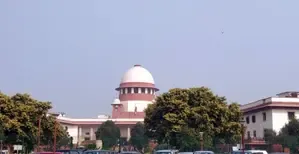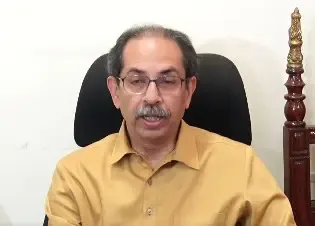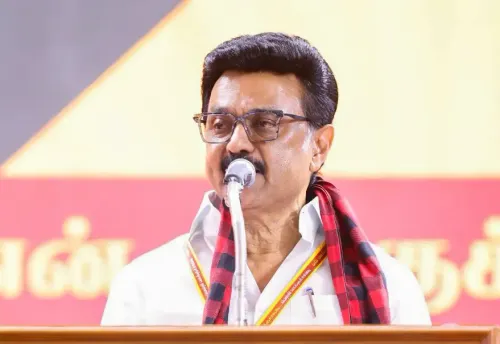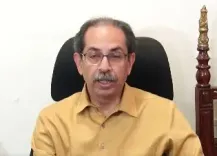Supreme Court Mandates Toilet Facilities in All Court Premises

Synopsis
Key Takeaways
- Supreme Court mandates toilet facilities in all court premises.
- Facilities must cater to men, women, PwD, and transgender persons.
- Access to sanitation is a fundamental right under Article 21.
- High Courts tasked with overseeing facility implementation.
- State governments required to allocate funds for maintenance.
New Delhi, Jan 15 (NationPress) The Supreme Court has mandated the establishment of dedicated toilet facilities for men, women, persons with disabilities (PwD), and transgender individuals across all court premises and tribunals in the nation.
A bench led by Justices JB Pardiwala and R. Mahadevan remarked that toilets, washrooms, and restrooms are not merely conveniences but essential rights of human dignity. They stated, “Access to adequate sanitation is recognized as a fundamental right under Article 21 of the Constitution, which ensures the right to life and personal liberty. This right encompasses the guarantee of a safe and sanitary environment for all individuals. Every State/Union Territory has an obligation under Part IV of the Constitution to cultivate a healthy atmosphere and consistently work to enhance public health,” stated Justice Pardiwala’s bench.
The apex court was addressing a writ petition in the form of a public interest litigation (PIL) urging all states and union territories to establish public toilets and conveniences at all judicial locations, ensuring they are identifiable and accessible to lawyers, litigants, court personnel, etc., while also catering to the needs of individuals with disabilities.
In its ruling, the Supreme Court declared, “It is the responsibility of the government and local authorities to furnish basic toilet and sanitation facilities on court premises, ensuring they are constructed, maintained, and kept in hygienic conditions for men, women, PwD, and transgender individuals.”
“Access to justice entails fostering a welcoming and humane environment for all participants in the justice process. Litigants should not feel compelled to forgo their legal rights due to apprehensions about enduring long hours in court without access to essential amenities. Consequently, High Court premises must be equipped with adequate washroom facilities for judges, lawyers, litigants, and staff, akin to other public facilities,” the court added.
The apex court underscored the necessity of ensuring these facilities are properly maintained and accessible to everyone, without causing discomfort or inconvenience. It conveyed “serious concerns” regarding instances where even judges, particularly in rural locales, lack access to proper washroom facilities, stating: “The inadequacy of proper washroom facilities signifies more than a logistical issue; it highlights a deeper flaw within the justice system. This lamentable situation showcases the stark reality that the judicial system has not entirely met its constitutional duty to provide a secure, dignified, and equitable environment for all seeking justice.”
“Courts must not be venues where fundamental needs, such as sanitation, are ignored and disregarded. The lack of sufficient washroom facilities undermines equality and obstructs the fair administration of justice. Thus, all High Courts must take prompt and effective measures to rectify this issue. Immediate action is required to ensure that all judicial premises, particularly those deficient in proper facilities, are equipped with accessible washroom amenities for judges, litigants, lawyers, and staff,” emphasized the apex court.
In issuing a series of directives, the Supreme Court stated that all High Courts will oversee and guarantee that washroom facilities are clearly identifiable and accessible to judges, lawyers, litigants, and court staff. “To facilitate this, a committee must be formed in each High Court, chaired by a Judge appointed by the Chief Justice, with members including the Registrar General/Registrar of the High Court, the Chief Secretary, the PWD Secretary, the Finance Secretary of the State, a representative from the Bar Association, and any other relevant officers, within six weeks,” it ordered.
The apex court instructed all state governments and union territories to allocate adequate funds for the construction, upkeep, and sanitation of toilet facilities within court premises, with periodic reviews conducted in collaboration with the committees established by the High Courts. These committees will devise a comprehensive plan and perform various tasks, such as surveying the availability of toilet facilities and identifying gaps in infrastructure and maintenance.
The petitioner, Rajeeb Kalita, a practicing advocate registered with the Bar Council of Assam, contended that the scope of the fundamental right under Article 21 of the Indian Constitution encompasses the right to live with dignity, which includes essential needs like adequate nutrition, clothing, health care, etc. He argued that no individual can live with dignity without facilities to maintain basic hygiene.
Furthermore, the petitioner asserted that the Constitution imposes a duty on the government to enhance public health, elevate living standards, and improve nutrition levels, as outlined in Article 47 under the Directive Principles of State Policy (DPSP). Sanitation also falls under Article 48A, which mandates the protection and enhancement of the environment. The petition also highlighted international standards concerning the construction of public toilets for men, women, and individuals with disabilities, including transgender persons, while ensuring hygienic conditions.
Ultimately, the petitioner argued that it is essential and just to provide clean and hygienic toilets not only in places like markets, train stations, tourist locations, and office complexes, but also within court complexes, where numerous advocates, litigants, and staff members are present. Without this, the rights conferred by Article 21 cannot be genuinely upheld.









